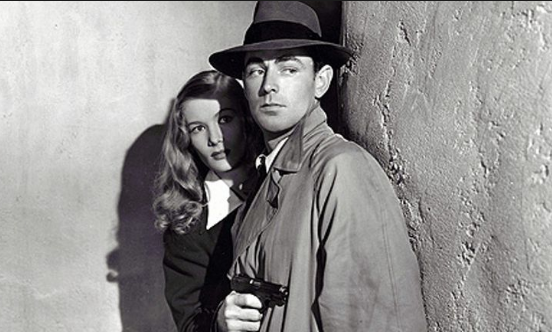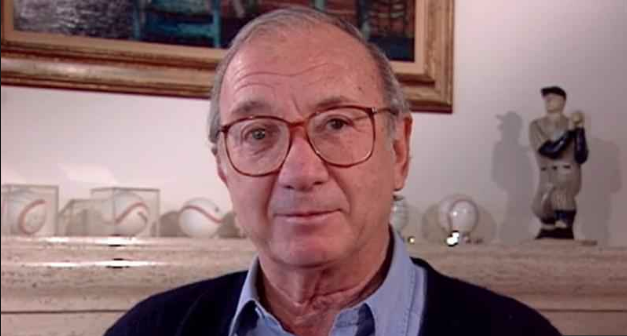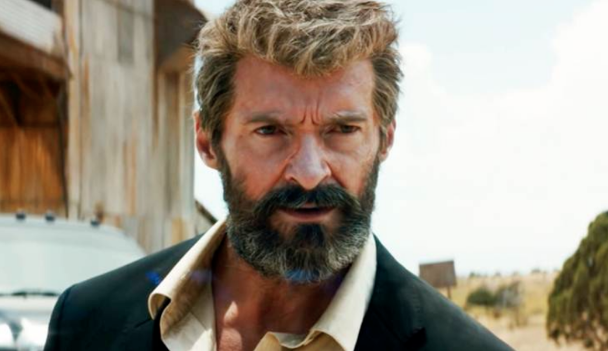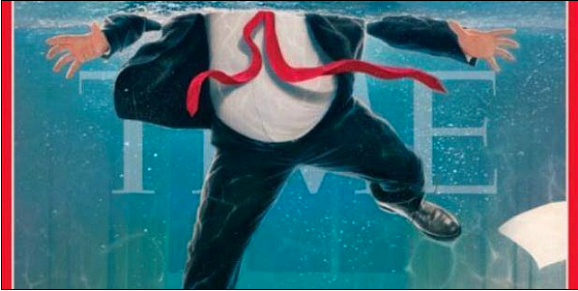Have we forgotten already what a wipeout True Detective became during its second season? In my book creator, co-writer and sometime director Nic Pizzolatto committed career hari kiri with that godforsaken series, which costarred Colin Farrell, Vince Vaughn, Rachel McAdams, Taylor Kitsch and Kelly Reilly. The awe and respect everyone felt for Cary Fukunaga‘s season #1 (Matthew McConaughey, Woody Harrelson) was wiped off the books by season #2 and then some. I’m not saying I won’t watch season #3, which costars Mahershala Ali, Ray Fisher, Carmen Ejogo, Stephen Dorff, Scoot McNairy and Mamie Gummer, but I’m very, very skeptical. The HBO series will premiere in January 2019.
Bruh Current
During the late Dubya years I needed to settle upon an acceptable substitute for “man” (’50s, 60s, 70s) or “dude” (late ’80s, ’90s) or “bro,” which I always hated with a passion**. Sometime around ’06 I decided to give “dawg” a try, but I was immediately mocked (white guy using South Central terminology). I continued to use “dawg” in mock ironic fashion, but I more or less backed off. Two or three years ago I sidestepped into “brah”, but I’ve lately been favoring “bruh.” Here’s a three-year-old languagejones.com chart that conveyed the regional popularity of “brah,” “bruh” and “breh”. In all seriousness and no kidding around, it’s kinda more “bruh” than “brah” now…right?
** If “bro” ever had any cachet, it quickly died after the “don’t taze me, bro” incident at the University of Florida.
War-Zone Risk Junkie
Matthew Heineman‘s A Private War (Aviron, 11.2) is some kind of high-anxiety, razor’s-edge saga of late war-zone journalist Marie Colvin. Rosamund Pike gets to play tough and tenacious with a Long John Silver eye patch, and Jamie Dornan tries to wash off the Fifty Shades of Grey stain by going all indie-gritty.
Written by Arash Amel, and based on a Marie Brenner Vanity Fair piece called “Marie Colvin’s Private War.”
On 2.22.12 Colvin was killed by shrapnel in the western region of Holms, Jordan. Her Wiki page says that “lawyers representing Colvin’s family filed a civil action in 2016 against the government of the Syrian Arab Republic for extrajudicial killing, claiming they had obtained proof that the Syrian government had directly ordered Colvin’s targeted assassination. In April 2018, the accusations were revealed on court papers filed by her family.”
A Private War will sidestep the prestigious early-fall festivals (Venice, Telluride, Toronto, New York) in order to have its world premiere at the Mill Valley Film Festival.
The 11.2 limited release will be followed by an expansion on 11.16. Pic costars Stanley Tucci, Tom Hollander and Corey Johnson. The dp is Robert Richardson.
“Between Democracy and Demogogic Authoritarianism”
It doesn’t get much truthier or more plain-spoken than this. Yes, it’s pronounced “demoGAH-jik.”
“Spitoonia!”
What do you wanna bet that My Dinner With Herve (HBO, 10.20), a film about Fantasy Island star Herve Villechaize (Peter Dinklage) recalling his life in an interview with a journalist (Jamie Dornan), will completely ignore what I regard as Villechaize’s funniest, strangest performance? I mean his gay Mexican character in Robert Downey Sr.‘s Greaser’s Palace (’72), who’s in and out in the space of a single five-minute scene.
“Nick Nack”, Christopher Lee‘s manservant, in The Man With The Golden Gun plus “Tattoo” in Fantasy Island…that’s all Vellechaize admirers ever talk about.
For those who’ve never seen Greaser’s Place, it doesn’t quite work unless you watch it totally ripped.
This Film For Remastering
Frank Tuttle‘s This Gun For Hire (’42) is primarily a violent thriller, but the combination of frostiness and vulnerability in Alan Ladd‘s Raven, a professional assassin, feeds into a vibe of brusque indifference and existential despair. Released two years before Billy Wilder‘s Double Indemnity, I’ve always regarded This Gun For Hire as the first high-impact film noir. Which puts it into the pantheon of 1940s releases. Pretty much every film-loving dweeb subscribes to this view.
But for some odd reason Universal has never released a Bluray or streamed it in HD. Here we are in 2018, and the only way to watch this still engrossing, hard-boiled drama is on that same shitty DVD Universal released 14 years ago. Why don’t they get the lead out and remaster it? It would be fairly criminal to just let it remain a 480p experience.
Ladd’s breakout performance made him a big star, but his flush days lasted only about 15 years, give or take. The poor guy died at age 50, of an accidental suicide in January of ’64.
“Once Ladd had acquired an unsmiling hardness, he was transformed from an extra to a phenomenon. Ladd’s calm slender ferocity make it clear that he was the first American actor to show the killer as a cold angel.” – David Thomson, “A Biographical Dictionary of Film.”
“One shudders to think of the career which Paramount must have in mind for Alan Ladd, a new actor, after witnessing the young gentleman’s debut in This Gun for Hire… Obviously, they’ve tagged him to be the toughest monkey loose on the screen. For not since Jimmy Cagney massaged Mae Clarke‘s face with a grapefruit has a grim desperado gunned his way into cinema ranks with such violence as does Mr. Ladd in this fast and exciting melodrama. Keep your eye peeled for this Ladd fellow; he’s a pretty-boy killer who likes his work…Mr. Ladd is the buster; he is really an actor to watch.” — from Bosley Crowther‘s review of This Gun For Hire (’42).
He Knew From New York Jewish Neurotics
The great Neil Simon has passed at the age of 91. Great as in hugely popular, prolific, hard-working, driven. I always admired his success and relentless output and came to respect some of his more mature material of the ’70s and ’80s, but I never regarded him as a heavyweight. Which he didn’t need to be because he was “Neil Simon.”
I was always impressed and often amused by Simon’s screenplays, which were usually adaptations of his hit Broadway plays, but I never thought they were profoundly moving or emotionally devastating or anything in that realm. They were mostly safe, likable and easily digestible stories about middle-class relationships (love affairs, marriages, families) for all ages but mostly for people born between the 1920s to the mid ’40s, or those who came of age with a “life can be brutally hard” sensibility that definitely resulted in a pre-boomer attitude.
Born in 1927, Simon grew up during the Depression and World War II and obviously believed that the gift of laughter was worth its weight in gold. His plays were never silly or juvenile and occasionally had bite and tension, but they were always “likable” and uplifting. Simon was a smart, very shrewd guy who used his life experience (struggling New York Jewish) to propel and sharpen his stories, but he always needed to entertain. And that he did. He wrote clean and true and, having come from TV comedy in the ’50s, knew about timing and pacing. His dialogue always felt “written,” but in a pleasingly professional way.
Simon was always a New York playwright first and a Hollywood screenwriter second.
A few months ago I re-watched Gene Saks‘ adaptation of Barefoot in the Park (’67), which Simon wrote in the very early ’60s (which were basically the ’50s extended up until the Kennedy assassination) and which opened on Broadway in October 1963. Costarring Jane Fonda, Robert Redford, Mildred Natwick and Charles Boyer, it’s very easy, witty and unthreatening. Always alert and “real” as far as it went, and never tiresome or lacking in pep.
As a failed screenwriter I know something about how difficult it is to write well and concisely while generating laughs and sustaining dramatic tension, and so I have nothing but respect for that play and film. But there’s nothing earth-shattering about it.
Not Easy Being In Front
Nine years ago I made my first mention of enlightened incarceration of dumbfuck rural righties via green re-education camps. I said I was half-kidding, of course, but you knew I was half-serious. A year later I said I was “perfectly serious” about rounding them up in trucks, etc. Five years later, in late 2015, Bill Maher joked that this idea made sense. Kidding but half-serious. And now Doonesbury‘s Garry Trudeau is saying the same thing, calling it a desperate liberal daydream but at the same implying there are crazier ideas out there.
In other words, a fair way to describe Hollywood Elsewhere is “the column that spoke too soon.” You may find certain HE ideas or notions appealing, but for your own political protection it’s better to wait for other opinion-shapers to echo them first. For I am Hawkeye or Chingachgook, a finder of new paths and new realms. If you’re smart you won’t immediately repeat or advocate what you read in Hollywood Elsewhere…instead you should wait five years, or better yet ten.
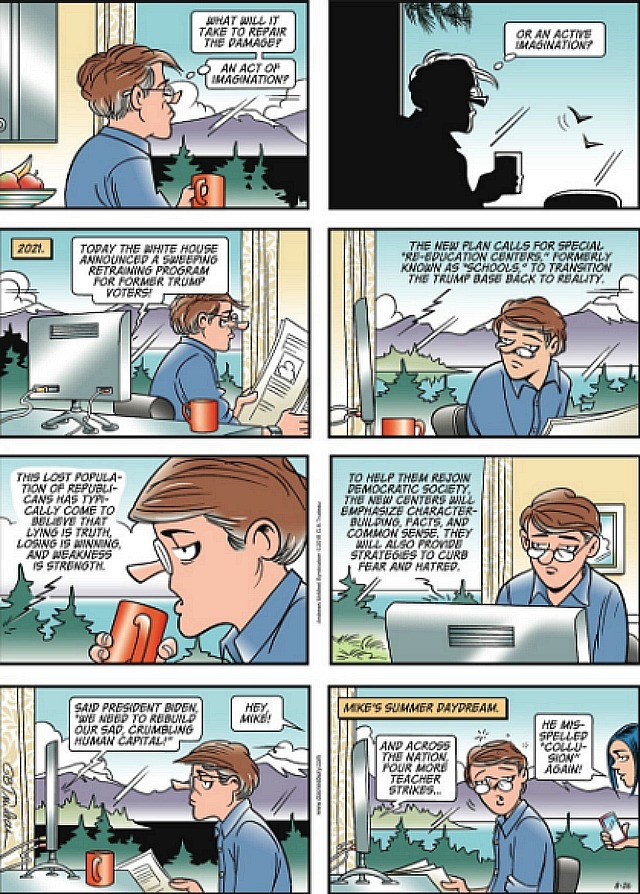
“Exterminate, forbid or significantly reduce selfishness in our society and we’re obviously looking at a better world. Therefore the extermination of the right would theoretically be a reasonably good thing. Not that this is possible. I understand that. But if I ran things they would all be rounded up and sent to green internment camps for reeducation. All right, I’m kidding.” — from an 8.5.09 post titled “Argument Over Beers.”
A year later, on 9.17.10, I wrote that “I want these people rounded up in trucks and incarcerated in green reeducation camps. I’m perfectly serious.”
“The more pernicious and threatening the climate-change situation gets, the less radical my green reeducation camps idea will seem. If you don’t want any kind of future for your grandchildren and great-grandchildren, fine…let’s just cruise along and do nothing. But there’s really no way to argue against the notion that rural yokels and their Congressional reps are, no exaggeration, the most malicious villains of our time…public enemies in every conceivable sense of that term.” — From “While Rome Burns“, posted on 5.8.14.
McCain
A respectful salute to the late John McCain, the ex-Navy pilot who endured much agony as a P.O.W in Hanoi from ’67 to ’73, the long-serving U.S. Senator from Arizona (elected in ’87) who ran against and lost to Sen. Barack Obama in the 2008 presidential election, and whose climactic thumbs-down vote on last year’s attempted repeal of Obamacare pretty much saved the day.
The 81 year-old McCain died a couple of hours ago from brain cancer. Condolences to family, friends, colleagues and supporters. An imperfect but reasonably good fellow as far as as his conservative principles and necessary allegiances allowed.
The closest I ever was to McCain in a physical proximity sense was during my two visits to Hoa Lo prison (i.e., “Hanoi Hilton”) in 2012 and again in ’16. My first stirrings of understanding and even compassion in a political-tribulation sense came from Ed Harris‘s casual, low-key portrayal of McCain in Jay Roach‘s Game Change, an HBO drama about the behind-the-scenes Sarah Palin nightmare during the ’08 election.
I respect the courage it took to vote against the Obamacare repeal — hats off — and I deeply admire the way McCain handled that ignorant woman who called Obama “an Arab” during a McCain political rally. Ditto the way he conceded to Obama with grace and eloquence on the evening of 11.4.08, and how he conveyed to his Arizona supporters that booing and other expressions of contempt for President-elect Obama weren’t cool and wouldn’t be tolerated.
McCain faced his Hanoi ordeal with steel, defiance and tenacity. He toughed it out like a champ so let’s all raise a glass, but I have to say that I don’t think the word “hero”, which many of the news stories are using to describe McCain, correctly applies.
What Say Ye, Mangold?
“We have the problem that they tell us Logan is a great movie. Well, it’s a great superhero movie. It still involves people in tights with metal coming out of their hands. It’s not Bresson. It’s not Bergman. But they talk about it like it is. I went to see Logan ’cause everyone was like ‘this is a great movie’ and I was like really? No, this is a fine superhero movie. There’s a difference but big business doesn’t think there’s a difference. Big business wants you to think that this is a great film because they wanna make money off of it.” — Ethan Hawke quoted on 8.23 by The Film Stage‘s Rory O’Connor.
The same thing is happening now with reports about Disney pushing Ryan Coogler‘s Black Panther as a serious Best Picture contender. I wouldn’t be surprised if it lands a Best Picture nomination — in fact I’m predicting flat-out that it will.
But it can’t win, of course. One, it doesn’t really kick into gear until the last hour. And two, it’s basically a Marvel movie adhering to the same basic story beats that other Marvel flicks have followed, the difference being the native African representation factor and the whole historic pride thing that goes along with that, and of course the huge box-office factor. At the end of the day it’s going to win the Best Popular Film Oscar — we all know that.
Have Honestly Never Used The Term “Honey Badger”
As I understand it (and I’ve only been thinking about it for the last 20 or 30 minutes) a honey badger is someone who just wants to swagger or slither around and get all kinds of glowing attention while doing so. He or she may proclaim this or that belief or philosophy, but he/she is actually fairly elastic as long as his/her ego is being sufficiently stroked and a fair amount of money and privelege is part of the deal.
N.Y. Times columnist Frank Bruni has posted a conversation with filmmaker Errol Morris. The subject is rightwing sociopath Steve Bannon and Errol’s new film, American Dharma, which basically makes Bannon the center of attention and offers him a platform to spew all he wants about whatever.
Bruni: “Did [Bannon] try to feel you out at all about what political perspective you’d be coming from or have any fears about that?”
Morris: “I don’t think that he had fears about that. He’s a honey badger.”
Bruni: “Sorry?”
Morris: “Honey badgers don’t care.”
Bruni: “I also had the feeling, watching him in the movie, and I’ve had this feeling watching him elsewhere, that he’s a creature of extraordinary vanity, and you were giving him a microphone. Is that fair?”
Morris: “I think that is more than fair.”
Narcissism, Entitlement, Hubris
During last night’s chat with John Brennan, Bill Maher said something about the Trump miasma having put America and Americans in the midst of one of the three biggest critical crossroad moments in our nation’s history, the first two being the Revolutionary War and the Civil War.
It’s now clear that a highly significant minority (i.e., the entire country outside the cities) is ready to abandon the basic tenets of democracy and for that matter sanity in order to submit to a crime-family autocrat who at least, they’re telling themselves, is trying to preserve a semblance of white-male dominance as they remember it from the ’50s, ’60s, ’70s and ’80s. Beast that he is, Trump’s supporters are rationalizing that at least he’s standing foursquare for heartland white culture (or claiming as much) and trying to prevent the multiculturals and LGBTQs from gaining too much ground.
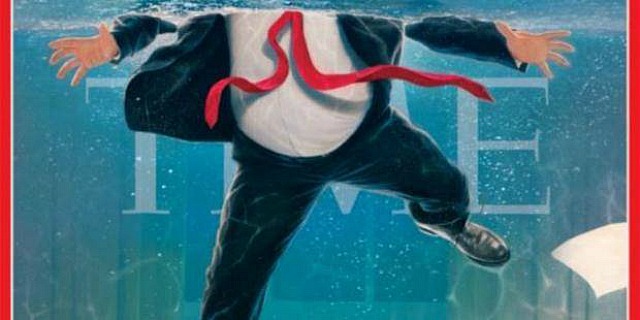
From “How Far America Has Fallen,” a N.Y. Times opinion piece by columnist Roger Cohen, posted on 8.24:
“The thing about all the shocking Trump revelations is that they are already baked into Trump’s image. His supporters, and there are tens of millions of them, never had illusions. I’ve not met one who did not have a pretty clear picture of Trump. They’ve known all along that he’s a needy narcissist, a womanizer, a lowlife, a liar, a braggart and a generally miserable human being. That’s why the Access Hollywood tape or the I-could-shoot-somebody-on-Fifth-Avenue boast did not kill his candidacy.
“There’s a deeper question, which comes back to the extraordinary Western landscape and the high American idea enshrined in it. Americans elected Trump. Nobody else did. They came down to his level. White Christian males losing their place in the social order decided they’d do anything to save themselves, and to heck with morality. They made a bargain with the devil in full knowledge. So the real question is: What does it mean to be an American today? Who are we, goddamit? What have we become?


